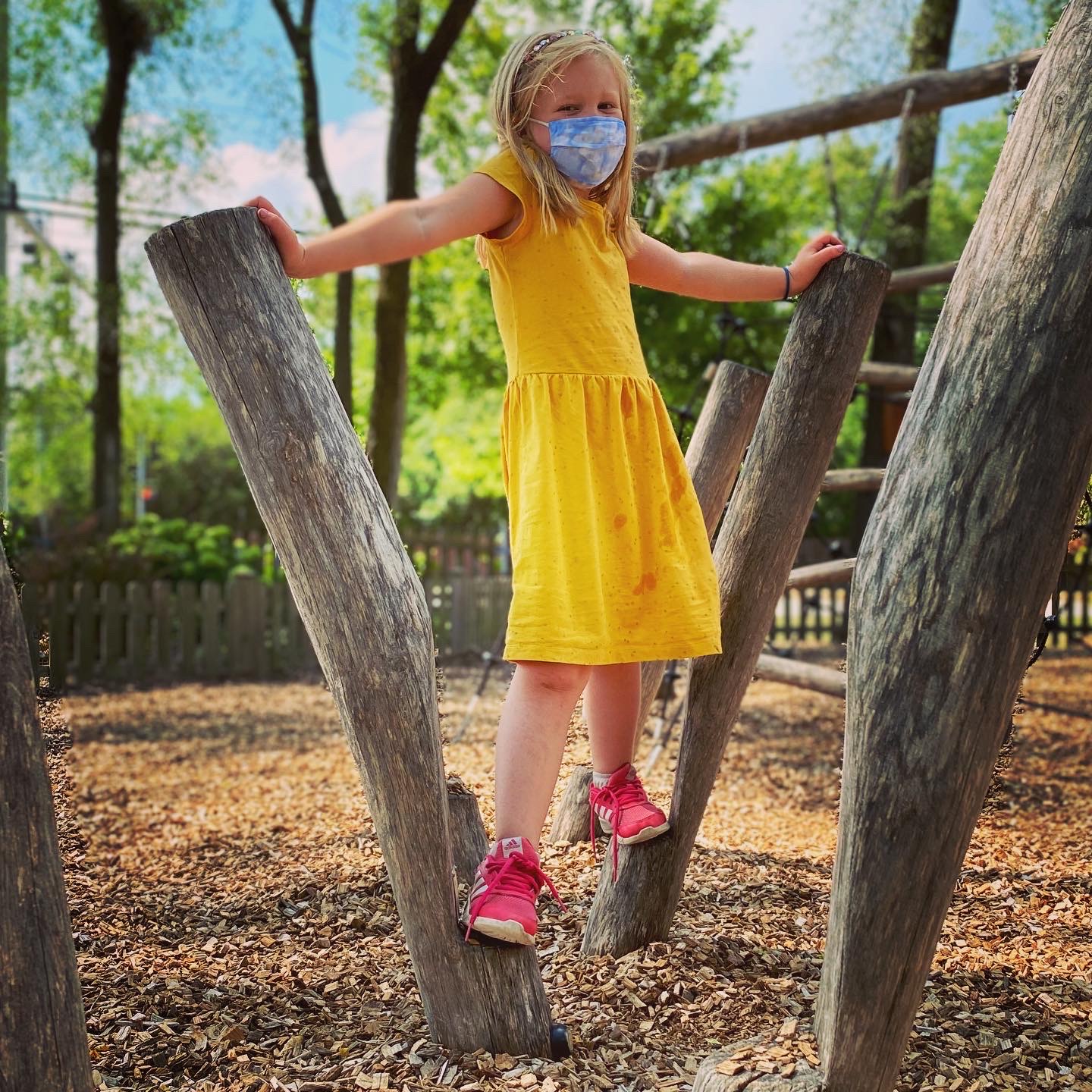Less Stuff, More Adventure
by Michele Aspinall
“Let the children be free; encourage them; let them run outside when it is raining; let them remove their shoes when they find a puddle of water; and, when the grass of the meadows is damp with dew, let them run on it and trample it with their bare feet; let them rest peacefully when a tree invites them to sleep beneath its shade; let them shout and laugh when the sun wakes them in the morning as it wakes every living creature that divides its day between waking and sleeping.” Maria Montessori.
We’ve concluded that fewer toys will encourage your children to play in diverse ways. They also will be compelled to play outside more! They will find themselves in more active, unstructured play. Traditional outdoor games of yesterday: Freeze Tag, Simon Says, Kick the Can, and Hopscotch, is no longer permeating neighborhoods. However, games like these resonate in children today just as they did decades ago. Though they are disappearing as quickly as the laced shoe, these unstructured pastimes will always remain as memory makers. Not only do they evoke endless laughter, but they also continue to teach our children self-control, social skills, respect for others, and conflict resolution.
It seems ridiculous to be advising parents today that it’s in their child’s best interest to play outside, but I often do. Consequently, the blogs and articles written on the subject are increasing by the day. They say that children are suffering from Nature-Deficit Disorder; this term is coined by Richard Louv, author of Last Child in the Woods: Saving Our Children From Nature-Deficit Disorder. It refers to children having less experience with and connection to nature over the last couple of decades. In my neck of the woods, one factor is leading this charge. After school scheduled activities. With the onslaught of extracurricular activities available to families, the idea of unscheduled outdoor free time is becoming nonexistent. There was a time when parents were genuinely trying to balance the idea of providing their children with every possible opportunity, be it soccer, volleyball, piano, or academic tutoring, with that of unscheduled free time. It feels like that train has left the station; the pressures that parents feel from their peers are intensifying. It’s becoming difficult not to feel judged if your child is not participating in multiple pursuits outside of school.
We cannot discount that the shift in preference from outdoor play to indoors is due to our children’s technology today. It cannot be ignored; screens are everywhere and oh so tempting to us and, in turn to our children. Studies confirm that an average American child spends 5 to 8 minutes a day in unstructured play outdoors and more than 6 hours a day in front of a device. Frightening numbers. And we know that the more time spent in front of a screen, the less interest our children have in occupying their own time, let alone doing it outside.
Parental fears about children playing outdoors are also on the rise. From the panic of possible injuries to the worry of inclement weather, the fact is, parents are scared for their children. As a three to the six-year-old teacher, I find myself constantly reassuring mothers and fathers alike that their children will be ok. But I can’t promise that and don’t try to. Things happen. That said, of course, we do our very best to keep all children out of harm’s way. However, when a concern of a bump, bruise, or scrape comes in, I remind them of all the possible dangers that are an inherent part of growing up. Bug bites, bumps, bruises, illnesses, hurt feelings, etc. that a child will likely experience by playing in the great outdoors. The reality is, there is no such thing as an incident-free life. The element of risk in everyday life is inescapable, and we know as Montessori educators, this is useful for teaching our children. Learning that there is a risk early allows a child to face reality and establish some resilience. We can’t and shouldn’t protect our children from these everyday obstacles. We must see childhood as a period during which we can aid our children on the path to adulthood by embracing success, happiness, struggles, challenges, and failures as opportunities to develop mature and robust character. This is a crucial part of our mission as Montessorians, and we frankly can’t get there without parents’ partnership.
Montessori articulates in The Montessori Method, “…man still belongs to nature, and especially when he is a child, he…draws from it the forces necessary to the development of the body and the spirit. We have intimate communications with nature which have an influence, even a material influence, on the growth of the body…”—depriving our children of nature and all that it has to offer means overlooking a basic instinct. So, get your children outside to take a walk, climb a tree, hear the whisper of leaves, dig up a worm, sense the wind on their faces, feel the rain on their heads, the sun on their skin, and most of all, just to “be.”
Calls us to schedule your personalized virtual tour or in person tour!
847-498-1105



Leave a Comment